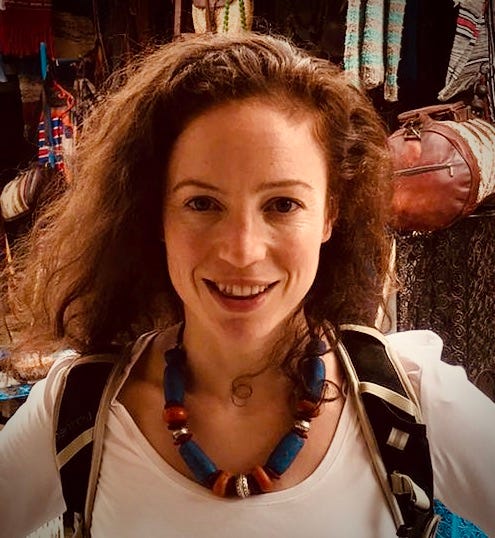My name is Alice Evans - Visiting Associate Professor at Stanford, and Senior Lecturer at King’s College London.
“The Great Gender Divergence” is my forthcoming book, with Princeton University Press. It explains how the world has become more gender equal, and why some societies are more gender equal than others.
My podcast is “Rocking Our Priors”.
Media coverage includes the Financial Times, BBC, New York Times (x 3), Guardian, New Statesman, and Wall Street Journal. In 2025, I gave a TedTalk on Romantic Love, and Project Syndicate named me a “Forward Thinker”.
Financial support has generously been provided by the British Academy Mid-Career Fellowship, Leverhulme Fellowship, Open Philanthropy, and O’Shaughnessy.
Forthcoming and published papers
‘What Caused the Global Islamic Revival?’ (working paper)
‘How did East Asia overtake South Asia on Gender?’ (working paper)
‘Export Incentives, Domestic Mobilisation, and Labour Reforms’, Review of International Political Economy, 28(5): 1332-1361.
‘The Politics of Pro-Worker Reforms’, Socio-Economic Review, 18(4):1089-1111.
‘Rocking Our Priors’, PS: Political Science & Politics (special issue on Podcasts), 2020, 53(2): 320-322.
‘Overcoming the Global Despondency Trap: Strengthening Corporate Accountability in Supply Chains’, Review of International Political Economy, 2020. 27(3):658-685.
‘How Cities Erode Gender Inequalities: A New Theory and Evidence from Cambodia’, Gender & Society, 2019, 33(6): 961-984.
‘Reputations count: why benchmarking performance is improving health care across the world’ (with Gwyn Bevan and Sabina Nuti), Health Economics, Policy and Law, 2019. 14(2): 141-161.
‘Politicising Inequality: The Power of Ideas’, World Development, 2018. 110: 360-372.
‘Cities as Catalysts of Gendered Social Change? Reflections from Zambia’, Annals of the Association of American Geographers, 2018. 108(4): 1096-111.
‘Amplifying Accountability by Benchmarking Results at District and National Levels’, Development Policy Review, 2018. 36(2): 221-240.
‘Patriarchal Unions = Weaker Unions? Industrial Relations in the Asian Garment Industry’, Third World Quarterly, 2018. 38(7): 1619-1638.
‘The Decline of the Male Breadwinner and Persistence of the Female Carer: exposure, interests and micro-macro interactions’, Annals of the Association of American Geographers, 2016. 106(5): 1135-1151.
‘“For the Elections We Want Women!”: Closing the gender gap in Zambian politics’, Development and Change 47:2, 388-411.
‘Gender Sensitisation in the Zambian Copperbelt’, Geoforum, 2015. 59: 12-20.
‘History Lessons for Gender Equality from the Zambian Copperbelt, 1900-1990’, Gender, Place and Culture, 2015. 22(3): 344-362.
‘“Women Can Do What Men Can Do”: The causes and consequences of flexibility in gender divisions of labour in Kitwe, Zambia’, Journal of Southern African Studies, 2014. 40(5): 991-998.
‘Co-education and the Erosion of Gender Stereotypes in the Zambian Copperbelt’, Gender & Development, 2014. 22:1, 75-90.
‘World Development Report 2012: Radical redistribution or just tinkering within the template?’, Development, 2012. 55(1): 134-137.
‘Looking for the One(s): Young love and urban poverty in The Gambia’ (with Sylvia Chant), Environment and Urbanization, 2010. 22(2): 353-369.
‘Sexuality, Poverty and Gender amongst Gambian Youth’ for Sylvia Chant (ed.) The International Handbook of Gender and Poverty (Cheltenham: Edward Elgar). 2010.



